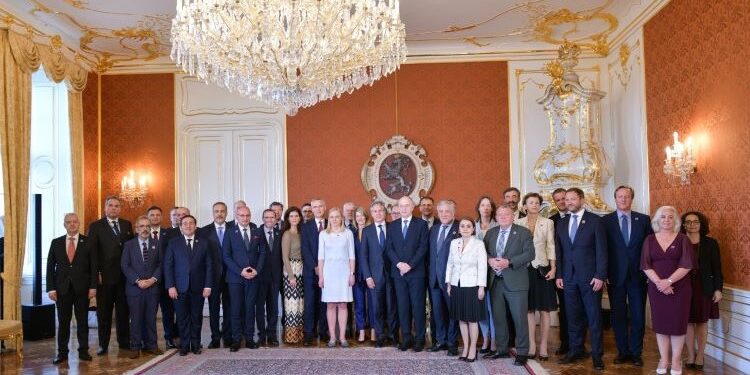The Diplomat
The Minister of Foreign Affairs, José Manuel Albares, assured yesterday that the Government of Ukraine has not requested “authorization” from Spain to use the weapons donated by our country in Russian territory.
“That request has not been made and, therefore, the material that we are delivering is material so that Ukraine can defend itself and its territory,” Albares declared to journalists upon his arrival at the NATO ministerial meeting, held in Prague.
“We heard the NATO secretary general this week advocate for this,” he said, referring to Jens Stoltenberg’s call for allies to lift restrictions on the use of Western weapons supplied to Ukraine to attack Russia on its own territory.
“I do not see this material being used outside the borders of Ukraine” and “we are not considering it at the moment,” warned Albares, who assured that the military material supplied to date by Spain “has a defensive function so that Ukraine can defend its territorial integrity and its sovereignty and so that this war of aggression does not succeed.” To date, Spain has supplied military material valued at 300 million euros, which includes Leopard battle tanks, projectiles, as well as Hawk, Mistral, Harpoon and Aspide missiles and Patriot anti-aircraft missiles.
Last Monday, the President of the Government, Pedro Sánchez, and the President of Ukraine, Volodimir Zelenski, signed in Madrid the Security Cooperation Agreement between Spain and Ukraine, based on which our country undertakes to send a military aid package valued at 1,129 million euros. The agreement, valid for ten years and similar to the one signed by Ukraine with other countries, such as the United Kingdom, Germany, France, Italy, Denmark or Canada, will ensure sustained military support (delivery of weapons and training of troops) over the long term. term.
Jan Stoltenberg has asked allies to allow Ukraine to use weapons donated by the West to attack Russian territory, but he has insisted that these attacks must comply with international legality and be carried out in a “reasonable” manner. The governments of the United States, Germany, Estonia, Denmark and the Netherlands have already authorized Ukraine to use its military equipment within Russian territory, although exclusively in the vicinity of the Kharkiv region, where Russia is carrying out its offensive.
When asked if the decision of other countries to authorize the use of their weapons in Russian territory could escalate the conflict and even involve NATO in the war, Albares stated that “the only one that is causing an escalation from day one and that does not need any excuse or any condition to escalate is Russia.” “From day one, the only reason for the violence and the escalation in violence comes from Russian aggression, completely contrary to international law,” he added.
Military and financial aid
During yesterday’s informal meeting in Prague, the North Atlantic Council made progress in preparations for the Washington Summit in July, and agreed that aid to Ukraine must remain a top priority.
In the subsequent press conference, Stoltenberg highlighted that “virtually all military aid to Ukraine, 99 percent, comes from NATO allies,” and announced that the Alliance will take on a greater coordinating role in the supply of equipment and training to Ukraine, which would “provide more predictability to kyiv and address immediate and long-term needs.” “Allies have provided approximately €40 billion in military aid to Ukraine each year” and, if the end of the war is to be accelerated, NATO members must maintain “at least” current levels of support for Ukraine “for as long as necessary,” he warned.
He also proposed a multi-year financial commitment for Ukraine. Stoltenberg has repeatedly defended the launch of a fund of 100 billion euros over five years to support Ukraine. In this sense, Albares yesterday defended the creation of a fund that provides “predictability to Ukraine”, since “it needs to know at all times what funds it has and to be able to plan.” “It cannot simply be at the good will of each of those who want to support it,” he added.
In any case, the minister asked for “complementarity” between donors in order to avoid duplication “between what we already do bilaterally, what we do at the level of the European Union and what can be coordinated at the level of NATO.”
On the sidelines of the NATO meeting, Albares held a meeting in Prague with her Canadian counterpart, Mélanie Joly, with whom she discussed “the excellent Spain-Canada relations, which we wish to continue deepening,” as well as “support for Ukraine.” and our work for peace in the Middle East,” as reported by the minister through the X social network.







